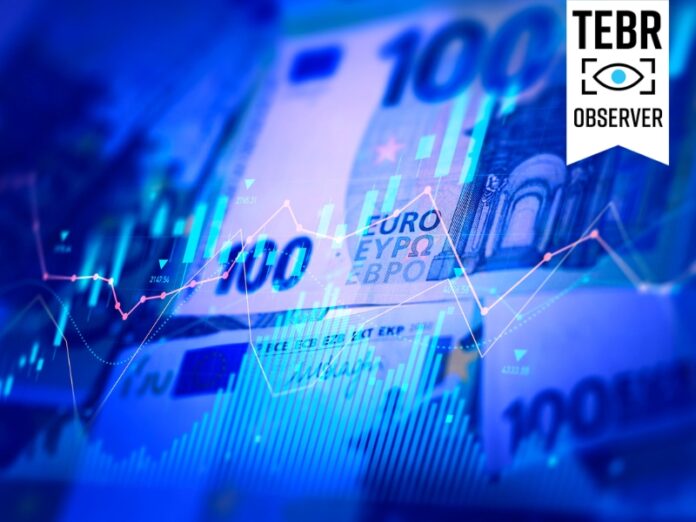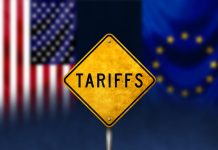By Emil Bjerg, journalist and editor
After a rocky start to August, the European Stoxx 600 Index looks more promising than it has for a long time. Are European stocks and economies making a comeback?
European stocks have had their longest weekly winning streak since March. This comes after global markets had a rocky start to August.
Currently, however, the outlook for European stocks is better than it has been for several years. On Friday, August 23rd, the Stoxx 600 Index closed with a gain of 1.3%. It’s the third week in a row that the index has closed positively, reflecting growing optimism about the European economy and its recovery prospects.
Factors Contributing to the Rise in European Stocks
After years of aggressive inflation measures, declining interest rates are now playing a significant role.
The winning streak for European stocks followed the announcement by Federal Reserve Chair Jerome Powell that the American central bank is likely to cut its key interest rate. Powell’s comments indicate a shift in priority from solely controlling inflation to also supporting economic growth and employment, especially in light of recent signs of a slowing labor market. In other words, after years of inflation control measures, the Federal Reserve appears ready to ease o the brakes, a decision that boosts investor confidence globally while also lowering borrowing costs, stimulating stock markets.
The European Central Bank’s interest rate cuts in June naturally had a positive effect on stock markets. So does the expectation that the ECB will further lower interest rates in September as focus moves from managing inflation to growth and job creation.
In recent years, the European economy has been notoriously slow, struggling to keep up with American and Chinese growth numbers. But recent numbers from the Eurozone have shown better-than-expected results, strengthening investor sentiment.
Both in the first and second quarters of 2024, the EU economy grew by 0.3%, marking an improvement after a prolonged period of stagnation. This growth, although “below estimated potential”, exceeded expectations and signaled the end of a mild recession experienced in the second half of 2023.
Finally, some analysts believe European stocks are in a “sweet spot”, offered at a considerably lower price-to-earnings ratio compared to the U.S market.
Differences Between American and European Stocks
For those considering both American and European stocks, investing in European companies could offer a bargain.
“The Stoxx 600 trades at a price-to-earnings ratio of 15, against 26 for America’s S&P 500 index. In other words, European shares trade at a 40% discount,” The Economist recently wrote. Why are European stocks this much cheaper?
The U.S. market is more heavily weighted towards technology and other growth sectors, while Europe has a larger representation of “old economy” companies in sectors like financials, industrials, and consumer staples. Sectors with less growth than tech.
Significant parts of the European economy are based on the car industry and luxury goods, both volatile sectors. The European car industry faces intense competition from the US and, in particular, from China, where the government provides substantial public investment.
While Europe dominates the global luxury goods market, it faces increasing competition from China’s growing domestic luxury brands. The sector is also vulnerable to economic slowdowns in key markets like China, which could impact demand.
In other words, European stocks are considerably cheaper than US stocks, but could also be more volatile.
Why Is Europe Struggling to Catch Up with the US and China?
Europe is currently struggling to catch up with the economic growth rates of the United States and
China, facing several challenges that hinder its competitiveness on the global stage. This “competitiveness crisis” has roots stemming from productivity stagnation, underinvestment in key areas, and demographic challenges.
“Our organization, decision-making and financing are designed for ‘the world of yesterday’ — pre-Covid, pre-Ukraine, pre-conflagration in the Middle East, pre-return of great power rivalry,” Mario Draghi, a former ECB president who now leads a study of Europe’s competitiveness, recently said to the New York Times.
Europe is struggling to catch up with the pace of public investments, compared to that of China and the US. And both superpowers are famously investing in industries that drive up their strategic independence – from semiconductors to diverse energy sources.
“The European Union is set to fall far behind its ambitious energy transition targets for renewable energy, clean technology capacity and domestic supply chain investments,” Rystad Energy writes.
And then there are the private investments. Big European companies are investing less than American ones. They’re spending less money on research and development, while only growing at two-thirds the pace, McKinsey reports.
Europe also struggles to retain valuable companies, particularly in tech, which often relocate to the U.S. due to better access to capital and talent. This ‘startup drain’ or ‘unicorn drain’ poses significant challenges for Europe’s tech ecosystem and long-term economic competitiveness.
Can Europe Catch Up?
Mario Draghi has declared that “radical change” is needed on the old continent. As The New York Times writes, Mario’s recommendations include “enormous increase in joint spending, an overhaul of Europe’s higgledy-piggledy financing and regulations, and a consolidation of smaller companies.”
While the European economy compares in size with the US and China, it is generally agreed to be hindered by the fact that it consists of multiple separate countries with different economies, regulations, and policies. This contrasts with a dynamic American economy and a Chinese one-party state that can create and carry out five-year plans. As Simone Tagliapietra, a senior fellow at research institute Bruegel, says: “If we continue to have 27 markets that are not well integrated, we cannot be competing with the Chinese or the Americans.”
For that reason, powerful European thinkers and politicians like Mario Draghi and Ursula von der Leyen believe in strengthening the single market.
Further, many believe that consolidating smaller companies is crucial to compete with the scale of
American and Chinese companies that “are better positioned to gulp up market share and profits”.
Efforts to strengthen the single market and consolidate companies do prove controversial among parts of the European public, wary of giving up more power to the EU, and skeptical of the effects that European champions will have on local economies. On the other hand, consistently losing market shares to large economies could also see European nations lose power and autonomy.
Can Europe catch up to the two global superpowers? With newfound optimism and political ambition, Europe may eventually narrow the gap, but significant challenges remain.









